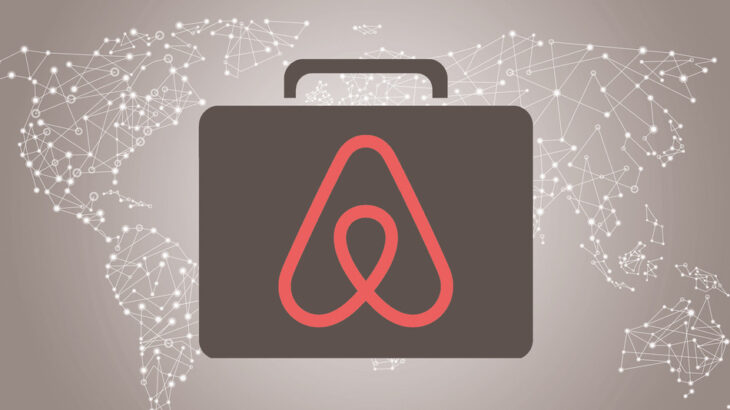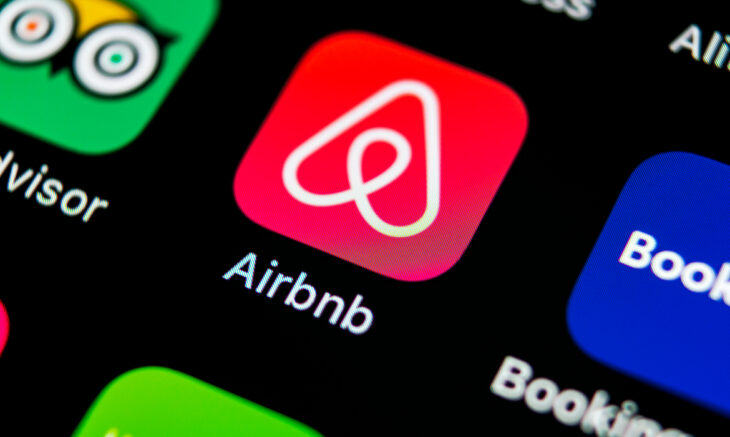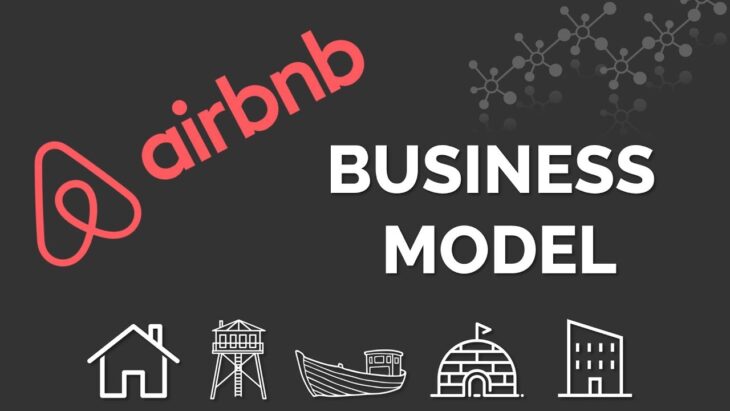Airbnb is an online short-term vacation rental marketplace connecting hospitality entrepreneurs who want to lease out their spaces with travelers who are seeking accommodation in that community. Today, Airbnb services are accessible in 220 countries and regions throughout the globe offering over 7 million listings from local hosts.
Airbnb helps owners monetize their properties by offering lodgings in touristic destinations while vacationers receive the opportunity to find decent accommodation at a relatively inexpensive rate in a place of interest. Bridging two parties of a business, Airbnb makes its money, too. The company charges a fixed 10% commission from hosts upon every deal concluded through the platform and charges 3% of the booking amount from guests upon every confirmed reservation.

Source: Learnbnb blog
Contents
Who can run a business on Airbnb?
Almost anyone can host on Airbnb. Even people without property or shared space to offer can join the platform and make real cash by organizing adventures and experiences for globetrotters. Airbnb offers a variety of rentals: entire places, spare rooms, B&Bs as well as unique stays like yurts in a forest, beachside bungalows, and luxury retreats.
Sometimes individual hosts partner up to administer a place to stay together, this phenomenon is known as co-hosting. Realtors, hoteliers, and multi-property owners form a group of professional hosts who use Airbnb to target their audience and grow their business.
Adventure providers are local experts who advertise different things-to-do on Airbnb. These people can add more spice to your stay by organizing your leisure during the vacation, for example by showing you around the city, offering unique master-classes, or inviting you to an authentic concert.
Summing up, everyone, who has a nook to lease out or an interesting activity to do, can exploit Airbnb to earn extra income.

Source: Regiondo
Pros and cons of being an Airbnb entrepreneur
While Airbnb is a great way to cash in on leasing a property or organizing experiences, this business is not free of certain pitfalls. But let’s consider the better side first.
Benefits of Airbnb hosting
- This business pays well. If your accommodation is cute and comfortable, clean and neat, and in a hot touristic destination while you offer great customer service, chances are that you will earn pretty much with this room-letting platform.
- It expands your cultural level. Hosting on Airbnb allows for meeting new people of different cultures from the entire planet, which helps to know more about foreign places and broadens your outlook.
- It makes you a more careful homeowner. If your lodging is rented frequently, you will have to thoroughly maintain it in superb condition ensuring it continues to attract new guests. Clients adore criticizing all and everything, and to avoid negative reviews and complaints, you will have to learn to keep your place flawless, and it is a fiendishly useful skill.
- It is convenient. Running an Airbnb business is all about flexibility. You do not need to host 24/7, but you decide on which days your offerings are available to potential guests. You can make certain weekdays or dates blocked for bookings as well as adjust your price policy based on seasonality and other conditions. Dedicated software for managing Airbnb property like www.hostyapp.com even offers a built-in module for accepting and processing payments directly from the Airbnb platform, saving you from the headache of handling finances by yourself.

Source: Short Term Rentals
Disadvantages of Airbnb hosting
- Risk of property damage. As an Airbnb host, you are going to let complete strangers settle in your property for a while. Despite the platform allows to screen guests before they check-in, you can never predict how they will treat your space. Surely, Airbnb has the Host Guarantee Program to indemnify homeowners up to $1 million in case they have come across ill-behaved tenants, but it may not be enough to compensate for all the losses incurred.
- Unsteady incomes. While it is quite possible to have life-sustaining income through hosting on Airbnb, earnings may be quite unstable and occasional compared to leasing out a property for the long term. Get ready that there will be periods with insanely many booking turnarounds and periods of scant deals.
- Complex, effort-consuming work. Maintaining your property appealing takes lots of time and effort, and many hosts may find themselves exhausted while cleaning, repairing, and performing other upkeeps. Some hosts choose to outsource cleaning and maintaining services, but this luxury does come at a cost. When you get deeper into the business, you will realize that managing short-term rental accommodations involves surprisingly much work.
- Struggling with negative reviews. Your property for rent may be infinitely lovely and modern, and you may be the most hospitable and welcoming landlord on the planet, but this will not save you from negative reviews. Some individuals are just curmudgeonly and hard to please, writing tongue-lashing reviews out of nothing. And a single bad review can completely ruin your Airbnb career, so you need to be very scrupulous in providing irreproachable service.

Source: Cuatrecasas Blog
What are the main requirements for hosting on Airbnb?
Guests are looking for confidence and comfort, so the platform encourages hosts to:
- Respond to inquiries promptly. The hosts should maintain a high response rate and process requests within 24 hours.
- Accept booking requests and decline reservations as little as possible. Being polite and guest-focused is a telltale sign for the platform that you are a trusted host.
- Avoid booking cancellations. The website asks hosts to be responsible and not cancel reservations as this would spoil guests’ plans.
- Maintain a high rating. Vacationers expect consistently high-quality accommodation anywhere in the world, so use your best endeavors to offer an excellent guest experience.
- Provide the essentials. Hosts are recommended to provide their guests with the necessary amenities and things they may need while away from home. These include toilet paper, personal care items, towels, bedding, and pillows in quantities equal to the needs of one guest during the entire stay.

Source: South China Morning Post
What do you need to do before becoming an Airbnb host?
If you decide to become an Airbnb host, it is important that you know local laws and understand how they work.
Some regions have laws that restrict the ability to earn money on short-term vacation rentals. Often, hosts have to obtain permission or license before advertising on Airbnb. Certain types of short-term reservations may be completely prohibited in certain regions. The laws of different countries differ greatly in this context and apply penalties for their violation.
In some regions, Airbnb takes on itself the burden of calculating, collecting, and paying temporary residence tax. This tax is calculated differently in each region, and the platform is working hard to ensure all hosts around the globe can use this feature.
You need to check local laws before listing on Airbnb. You are advised to see Airbnb’s responsible hosting section to know more about taxes and rules on providing short-term rentals in your locale.

Source: Airbnb Life – Altervista
What can ease your Airbnb business?
Like in any other business, most Airbnb procedures can be automated and optimized for better performance results. Specialized rental property management teams help you run and grow your hosting business for a certain charge. They take the stress out of the process by performing all managerial, arranging, and controlling tasks on your behalf. Some large-scale hosts reckon to special vacation property management software offers cutting-edge functionality to put your Airbnb business on autopilot and give you more freedom. The essential tools of Airbnb management software comprise:
- Availability calendar to align schedules across all listings.
- Channel manager to control your listings across different platforms from a single interface.
- Automated guest communication and notifications to never let you miss an inquiry.
- KPI and financial reports to track your earnings and see rooms for improvement.
- Auto pricing to adjust your rates based on the demand.
- Guest review management to spend less time on writing feedback.
- Team management to automatically allocate cleaning and maintenance tasks to your staff.
